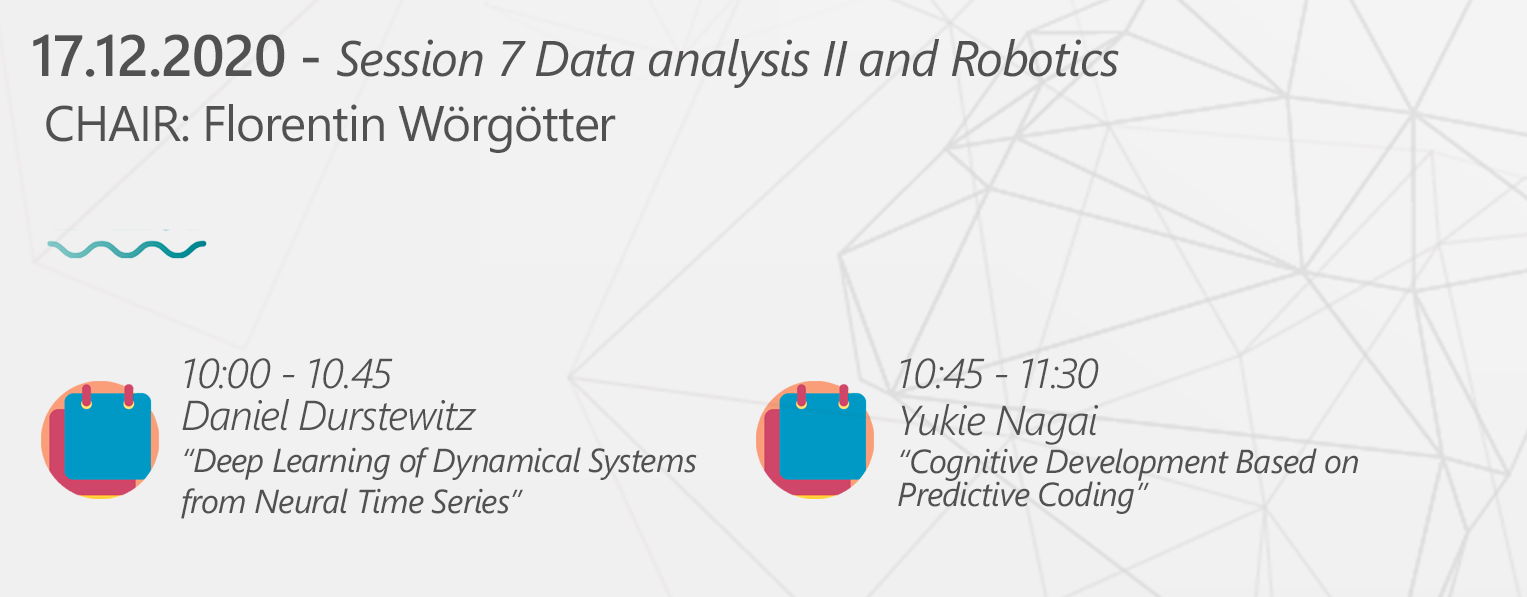
Session 7 - Details

Deep Learning of Dynamical Systems from Neural Time Series
Daniel Durstewitz
Computational processes in the brain, like working memory or decision making, are often conceived as being implemented in terms of their neural system dynamics. For instance, sequential-syntactical processes may be realized through neural trajectories that transit among attractor states or attractor ruins. Traditionally, in computational neuroscience, such neuro-dynamical models that can account for a set of physiological and behavioral observations are formulated by the theoretician and then compared to or tested on data. This is a laborious bottom-up process. In my talk, I describe an alternative route to scientific model building, namely inferring neuro-computational models directly from recorded time series data through statistical deep learning. For this we use a particular form of "dynamically interpretable" recurrent neural network, a discrete time version of a neural population model, embedded within a variational auto-encoder framework with specific regularization constraints. My talk will review this methodology, showcase it on various dynamical systems benchmarks, and illustrate some applications on neuroimaging and spike train data.
Cognitive Development Based on Predictive Coding
Yukie Nagai
A theoretical framework called predictive coding suggests that the human brain works as a predictive machine. That is, the brain tries to minimize prediction errors by updating the internal model and/or by affecting the environment. We have been investigating to what extent the predictive coding theory accounts for human cognitive development in terms of the temporal continuity (i.e., from non-social to social development) and the individual diversity (i.e., differences between typical development and developmental disorders).
This talk presents computational neural networks we designed to examine whether and how the process of minimizing prediction errors lead to cognitive development. Our experiments using a robot demonstrated that various cognitive abilities such as goal-directed action, imitation, estimation of others’ intention, and altruistic behavior emerged in a staged manner as observed in infants. Not only the characteristics of typical development but also those of developmental disorders such as autism spectrum disorder were generated as a result of aberrant prediction abilities. These results demonstrate that predictive coding provides a unified computational account for cognitive development (Nagai, Phil Trans B 2019).
Computational Neuroscience Group



